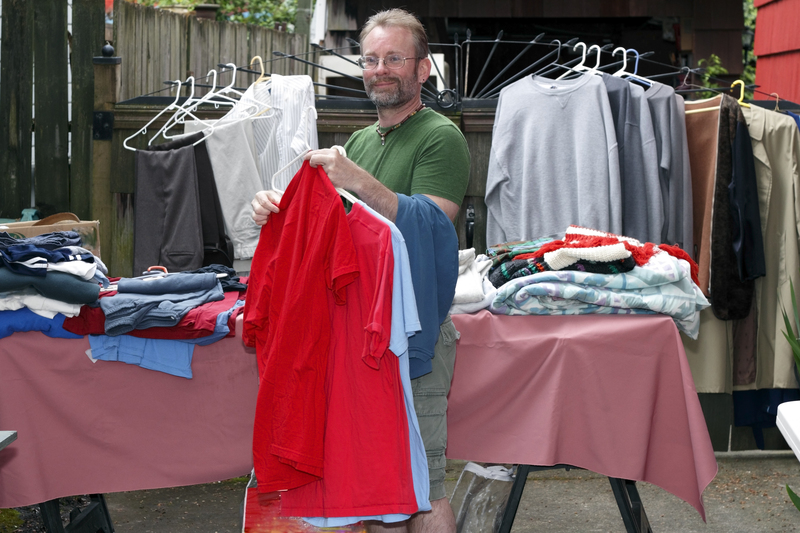Effective Waste Prevention Techniques at Home
Waste prevention at home is an essential step toward creating a more sustainable environment. By making conscious choices and altering daily habits, individuals can significantly reduce the amount of waste they generate. This not only helps protect the environment but also saves money and resources. In this comprehensive guide, we will explore practical waste reduction methods that every household can implement.

Why is Waste Prevention Important?
Every item we throw away uses energy, water, and resources throughout its life cycle -- from manufacturing through disposal. By focusing on waste minimization at home, we contribute to conserving natural resources, lowering greenhouse gas emissions, and reducing landfill usage. These collective actions can positively impact both local and global environments.
Key Benefits of Preventing Household Waste
- Saves money: Buying less and using products efficiently lowers household expenses.
- Conserves resources: Raw materials, water, and energy are preserved for future generations.
- Reduces landfill and pollution: Less garbage means fewer landfills and decreased pollution.
- Builds sustainable habits: Sets a positive example for communities and future generations.
Top Waste Prevention Techniques for Homes
1. Practice Mindful Purchasing
One of the most effective waste prevention methods at home is mindful purchasing. Avoid impulse and single-use purchases by planning your shopping and choosing items with minimal or recyclable packaging. Consider quality over quantity to ensure longevity and less frequent replacements.
- Make a shopping list and stick to it
- Choose products with recyclable or minimal packaging
- Avoid single-use or disposable items
- Opt for higher quality, durable goods
2. Embrace Reusable Products
Reducing waste at home can start by replacing disposables with reusable alternatives. This not only decreases overall waste but also leads to significant long-term savings.
- Switch to reusable water bottles and coffee cups
- Use cloth napkins and towels instead of paper ones
- Replace plastic wrap with beeswax wraps or reusable silicone covers
- Carry cloth shopping bags instead of plastic bags
3. Compost Organic Waste
A considerable portion of household waste is food and yard waste. Composting is a sustainable waste reduction strategy that turns organic materials into nutrient-rich soil for gardens and plants.
- Set up a home composting bin for food scraps and yard waste
- Compost fruit and vegetable peels, coffee grounds, eggshells, grass clippings, and leaves
- Keep meat, dairy, and oily foods out of compost to avoid pests
4. Optimize Food Storage
Food waste constitutes a large portion of household trash. Effective food storage and organization can extend shelf life and help prevent unnecessary disposal.
- Use clear, airtight containers for leftovers and pantry items
- Label and date food to track expiration
- Plan meals and shop with a plan to avoid overbuying perishables
- Implement a "first in, first out" system to use older products first
5. Donate or Repurpose Unwanted Items
Before discarding usable goods, consider donation or creative repurposing. Many clothing, electronics, and household goods can have a second life with someone else or with a new use.
- Donate gently used clothing, toys, and furniture to local charities
- Sell valuable items online or through garage sales
- Repurpose jars, containers, or old fabrics as storage or craft materials
6. Repair, Don't Replace
Repairing is a classic waste prevention technique at home. Instead of immediately buying new, try fixing broken household items, which saves money and resources.
- Sew minor clothing tears or reattach buttons
- Repair electronics and appliances when feasible
- Utilize local repair cafes or online tutorials for DIY fixes
7. Rethink Paper Use
Paper makes up a significant portion of residential waste. Minimize paper consumption by switching to digital alternatives wherever possible:
- Opt for electronic billing and communication
- Print only when necessary, and use double-sided printing
- Reuse scrap paper and envelopes for notes or lists
- Choose recycled paper products
8. Buy in Bulk
Purchasing groceries and household goods in bulk reduces the amount of packaging waste. This method can also lead to savings over time.
- Bring your own containers to bulk food stores
- Choose larger sizes of products to minimize individual packaging
- Store bulk goods properly to prevent spoilage
9. Practice Smart Recycling
While the priority should be on waste prevention, responsible recycling plays a crucial role when disposal is necessary. Make sure recycling is done correctly to avoid contaminating recyclables.
- Learn local recycling guidelines and accepted materials
- Rinse containers before recycling to reduce contamination
- Separate recyclables, compostables, and trash properly
10. Educate Household Members
Involve everyone in your household in effective waste prevention practices. The more informed each person is, the better the results.
- Discuss the importance of waste reduction regularly
- Assign roles for compost, recycling, and waste management
- Encourage creative ideas for repurposing and reducing waste

Creating a Waste-Preventing Mindset at Home
Sustainable waste management at home is mostly about changing habits. Make waste-preventing behaviors a natural part of your daily actions. With time, these will become second nature, resulting in a significant reduction of household waste.
Track Your Progress
Keep tabs on your trash output by monitoring how much you throw away each week. Set reduction goals, such as lowering the volume of garbage bins over time. Celebrate achievements and adjust strategies as needed.
Encourage Community and Family Involvement
If you have children or live with others, turn waste prevention into a fun and motivating challenge. Compare results with neighbors or friends and share tips on minimizing household waste. The more people actively involved, the more impactful your efforts will be.
Conclusion: The Long-Lasting Impact of Home Waste Reduction
By implementing effective waste prevention techniques at home, you make a positive impact on the environment and your personal well-being. These solutions--ranging from mindful shopping and reuse initiatives to composting and recycling--can dramatically reduce your ecological footprint.
Remember: every action counts. Start with one or two strategies that best fit your lifestyle and build from there. Soon, you'll experience not just a cleaner home, but also a satisfying sense of contribution to a healthier planet.
Frequently Asked Questions
- What is the most effective way to prevent waste at home?
Adopting reusable products, composting organic waste, and mindful buying are among the top methods to minimize waste. - How can families encourage waste reduction?
By educating all members, assigning waste-reduction roles, and making it a collective challenge, families can instill lasting waste-prevention habits. - Can composting really make a difference?
Absolutely! Composting at home drastically reduces landfill contributions, enriches soil, and cuts down on methane emissions. - How do I manage waste if I live in a small space?
Focus on reducing incoming waste, utilize digital solutions for paperwork, and explore compact or communal composting options.
Start your journey toward a more sustainable household today by incorporating these smart waste prevention tips at home. The benefits will extend beyond your walls--positively affecting your wallet, your environment, and your future.